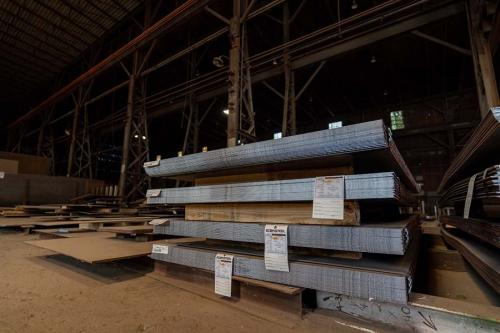Mill Test Reports (MTRs) are one of the most important aspects within the steel industry and any other industry where steel is used for processing purposes. MTRs document the physical and chemical properties of the material being tested, as well as the fact that the material is following an international standards organization's specific standards. These reports are also commonly referred to as a Certified Mill Test Report, Metallurgical Test Report, Mill Test Certificate (MTC), Inspection Certificate, or Certificate of Test.
Mill Test Report - Definition
MTRs are essential information for the end user because different projects require different steel grades. For example, Special Bar Quality (SBQ) steel requires specific methods of preparation and chemistry levels that a mild/low carbon steel grade such as AISI 1018 would not. MTRs provide traceability and assurance to the end user about the quality of the material and the process used to produce it. MTRs typically include the following:
- ASTM and/or ASME standards compliance
- Specific size, shape, and/or diameter specifications
- Chemical and physical property specifications
- Country of the melt and manufacturer
Mill Test Report (MTR) Standardization
MTRs are essential for steel manufacturers to ensure they provide their clients with quality materials that meet all specifications. The Material Test Reports are equally important for the end user of steel products. For example, sanitary products need specific material compositions to preserve the quality of the product that structural steel projects would not require. MTRS are confirmation that the material, in this case steel, complies with all standards needed for its future applications.
Mill Test Certificate
A mill test certificate (MTC), also known as a mill test report (MTR), also called a Cert for short, is a quality assurance document used in the metal industry that certifies a material's compliance with specific standards and specifications. The MTC, or mill test certificate, is essential for ensuring the material's quality and suitability for its intended use, providing a traceable link between the material and its production batch. It is commonly used in industries such as construction, manufacturing, and aerospace, where material integrity and performance are critical.
Understanding Mill Test Reports in the Steel Industry
A Mill Test Report (MTR) is an essential document in the steel industry that certifies a material's compliance with specific standards and specifications. It provides critical details about the physical and chemical properties of a metal product, ensuring quality control and traceability in manufacturing and construction projects.
Key Components of an MTR
- Material Description – Identifies the type of steel, including grade, alloy composition, and heat number.
- Chemical Composition – Lists elements such as carbon, manganese, sulfur, and other alloying components.
- Mechanical Properties – Includes tensile strength, yield strength, elongation, and hardness.
- Heat Treatment – Indicates whether the material has undergone any thermal processing.
- Test Results – Details destructive and non-destructive tests like Charpy impact tests, ultrasonic testing, or hardness tests.
- Compliance Standards – References industry specifications such as ASTM, ASME, or EN standards.
Importance of MTRs
- Quality Assurance: Ensures the steel meets regulatory and project requirements.
- Traceability: Links the material to its production batch, making it easier to track issues.
- Regulatory Compliance: Helps industries meet safety and performance standards.
A Mill Test Report plays a vital role in industries like construction, oil and gas, and manufacturing, providing transparency and confidence in the materials used for critical applications.

